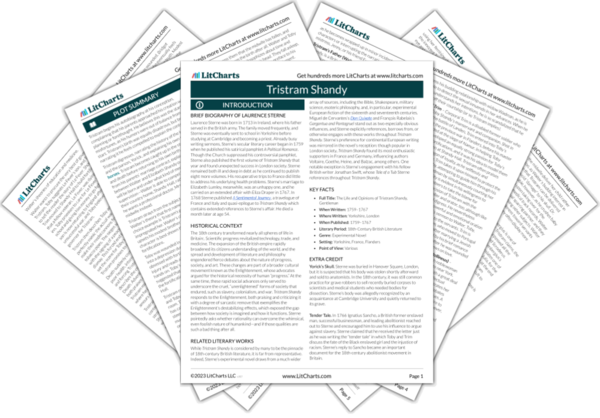Tristram’s dream of dying in an inn among strangers is of course scandalous, as it undermines all the essential values of the English household: family, belonging, and morality. His dream is also an elaborate setup for a cheap shot at the inn in Abbeville, which he disliked enough to retract his claim about preferring to die in an inn.
